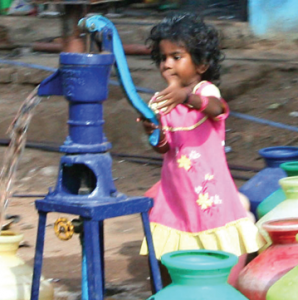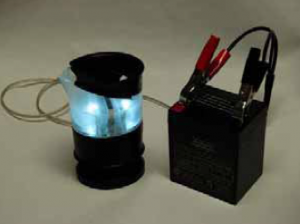
A generation of social enterprises has become increasingly visible by creating self-sustaining businesses. Social enterprises are similar to regular enterprises with one main difference: their gains aren't only measured in financial profit, but also by the impact they have on society. Many entrepreneurs have started social enterprises, breaking nonprofit tradition by blending mission with money, referred to as "double bottom line" businesses in relation to the triple bottom line. Two outstanding TED talks which frame the situation driving these social enterprises were given by Bjorn Lomborg and Hans Rosling.
I learned about a social enterprise, which is also a non-profit and NGO named PATH, in 2007 when I met an AIChE member, Researcher, and Assistant Professor at the University of Washington who brought their work to my attention. Then in 2010 I heard a talk, "Maximizing the Benefits of Public-private Partnership - A case study of PATH's Disposable-Syringe Jet Injector Project", and became further interested due to their relevance to chemical engineering, businesses, and society.

This week, while beginning a class called New Venture Marketing, I asked a PATH Project Manager if my class project, which is to write and present a Marketing Plan on a new product or service being introduced into a new or existing market, could be dedicated to a specific PATH Project.
My contact proposed building a marketing plan for their Community Water Project where they have partnered with Cascade Designs, Inc (CDI). This collaborative partnership has yielded a product, The Smart Electrochlorinator 200, that is not yet on the market, but currently in field trials, and going through product design iterations.
The act of "Doing Well by Doing Good" while adopting emerging strategies such as Reverse Innovation and Micro Financing allow firms to be financially healthy, i.e. do "well", since this strategy capitalizes on the emerging middle class of the developing world that will be the oxygen of future global economic growth. For example, CDI has technology that when applied in a slightly different context could have a long term profitable business unit built around meeting the developing worlds evolving water needs. Another example of a firm "Doing Well by Doing Good" is HaloSource.
If your interested in meeting AIChE members doing work in clean water technology, there will be an after hours happy hour during the AIChE National Meeting for networking and informing graduate students and young professionals. This event is on Monday, November 8, 2010 from 8:00 pm to midnight. You can RSVP on our Facebook Page.


